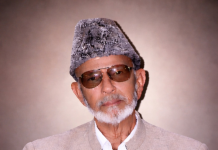THE six-month extension given to army chief Gen Qamar Bajwa by the Supreme Court will effectively keep him in office for at least the next three years as the court-mandated parliamentary approval to the legislation for this is a foregone conclusion.
Nine out of 10 people will tell you this when you ask them. But is it indeed a cakewalk for the incumbent? If you look hard enough you will also find the contrarian view, audaciously arguing that this is not the case and a cakewalk it is not.
This (miniscule) minority opinion would have you believe that Gen Bajwa, if his former senior and a ‘defence analyst’ retired Lt-Gen Amjad Shoaib is right, should have stuck to his guns and said no to the offered extension.
The retired general, who claims first-hand knowledge of developments, says the army chief never wanted or asked for an extension, in fact, offering to step down again as recently as last Wednesday (Nov 27) in a meeting with Prime Minister Imran Khan.
Even mainstream ‘opposition’ parties have not felt embarrassed about dancing to the establishment’s tune.
There is no way a fringe journalist like this columnist can confirm this as access to the real centre of power in Rawalpindi is restricted to ISPR-approved retired generals or a few so-called analysts, who are given to near-hysterical histrionics on TV programmes. We have to take their word for it.
To get a sense of the big picture one really needs to take a step back. Only then does the larger canvas become somewhat clearer. Those who think that Gen Bajwa will now remain in office for at least three more years, argue that the prime minister’s rationale for this is a significant factor.
Imran Khan, they say, feels quite smug that the man in such a powerful office does not shy away from being identified closely with the PTI government and supports it in vital ways. After all, is the security establishment’s hand in bringing the party to the finish line and carrying it over any secret?
More significantly, since the party has been in power and its government has looked no better than a rudderless ship, listing from one crisis to another, the security establishment has stood firmly behind it and publicly reiterated its support more than once.
Against this backdrop, it was perfectly logical for the prime minister to want the incumbent to continue in office for another three years at least, as, with such extraordinary powerful positions, who knows what dynamics are unleashed by an incoming chief. This ensured mutual longevity.
As for the court-mandated lawmaking that parliament has to do in order to retain or reject the incumbent beyond six months, it does not take an Einstein to look back at the political developments of the past 20-odd months.
From the March 2018 Senate elections (look up Balochistan), the Senate chairman’s election that followed to the more recent no-confidence vote in that very chairman, it has been abundantly clear that even mainstream ‘opposition’ parties have not felt embarrassed about dancing to the establishment’s tune.
In the current political environment, the only defiant political party may not be an obstacle. The grave illness of its top leader, and as a possible consequence the silencing of his outspoken daughter, has left the party in the hands of its defiance-averse, deal-inclined ‘pragmatic’ leaders.
Therefore, the Senate nod should also be a mere formality.
This, indeed, is the widely held view but where do you fit into this picture the latest reported statement of the JUI-F chief Maulana Fazlur Rehman who has again said he does not accept the current assembly as legitimate and hence it cannot be expected to legislate on this important matter?
Does this mean that the JUI-F, with its handful of legislators, will stay away from the exercise? Your obvious response would be: so what if does? It has such few numbers that in the ultimate analysis it won’t count for much.
That is true. However, observers who were perplexed at the timing of the party’s Azadi March from Oct 31, given that JUI-F’s allies in the PML-N and the PTI were asking it to postpone it for a few months, have still not fully understood the trigger for the maulana to not budge from his march date.
Despite having been ragged witless over its incompetence in notifying the army chief’s extension of tenure or fresh appointment, whichever may be the case, the PTI was not too wrong in saying that the legal challenge that was mounted to Gen Bajwa’s extension was unprecedented.
Although generals Ziaul Haq and Pervez Musharraf may have given themselves extensions during periods of their own unchallenged rules and powers, the second tenure of Gen Ashfaq Kayani was gifted by an elected government via a similar notification and faced no such challenge.
Keen Islamabad observers also make another important point. They say the petition challenging Gen Bajwa’s notification was submitted by a lawyer who is known for his ‘patriotic’ credentials, track record and is not a rebel of any sort.
Even as the prime minister took to Twitter to blame his political opponents, the ‘looters and plunderers’ and the hostile foreign powers for trying to sow the seeds of chaos in the country via the legal challenge, nobody may have told him that the petition was coming from a patriot, possibly even an insider.
No matter how small the minority that is expressing this view, it is making a point to ponder without doubt. And ponder we shall. Things may be resolved quickly or go to the wire and we’d be sitting on the edge of our seats well into the summer. There is never a dull moment in our beloved land.
The writer is a former editor of Dawn.
Published in Dawn, December 1st, 2019
















